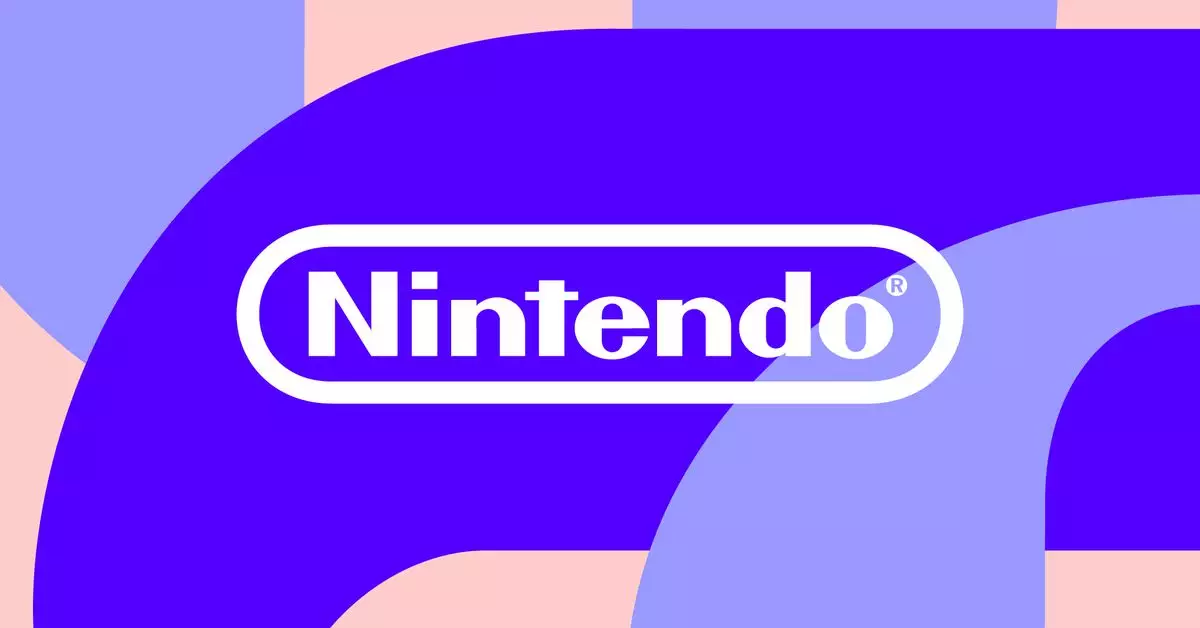Nintendo’s storied legacy in gaming is matched only by its rich tapestry of unforgettable musical scores. For many fans, the soundtracks are more than just background noise; they evoke nostalgia and elevate the gaming experience itself. With the recent launch of the Nintendo Music app, anticipation ran high as players hoped to access their beloved tunes in a centralized platform. Unfortunately, while the app boasts engaging concepts, it ultimately falls short of expectations due to a series of frustrating limitations and peculiar choices made by the company.
At first glance, Nintendo Music aligns itself firmly with modern streaming platforms like Spotify and Apple Music, featuring an interface that allows for easy browsing of songs divided by individual games or curated playlists. This thoughtful organization makes navigation user-friendly; fans can delve into specific titles or thematic playlists ranging from iconic characters to memorable battle themes. Particularly interesting are the dedicated pages for fictional in-game bands, such as those from *Splatoon 3*, which come complete with artist bios.
The app introduces some innovative aspects worth noting. One standout feature is the ability to extend songs into longer loops—15, 30, or even 60 minutes—an option particularly well-suited for the immersive soundtracks found in franchises like *The Legend of Zelda*. Tracks like “The Great Plateau” create a soothing backdrop for focus or relaxation, which resonates with users looking for a calm yet engaging auditory experience.
Another intriguing addition is the “spoiler prevention” list, allowing users the option to hide content related to games they have yet to play. This is a delightful nod to the gaming community, offering a way for players to maintain the thrill of discovery without unintentional exposure to potential spoilers.
Beneath the appealing surface lies a disheartening reality: the current selection of soundtracks is painfully limited. Despite Nintendo’s extensive catalog dating back over 40 years, only 25 games are available at launch. Iconic soundtracks from legendary titles like *Super Mario World* are frustratingly absent. Even beloved classics like *Metroid Prime* only feature limited songs, with notable compositions left out entirely. This lack of inclusion means that, rather than a comprehensive library, what we have is more of a snapshot of Nintendo’s recent musical endeavors.
Furthermore, the app’s limitations regarding song extensions are perplexing. Hopes for effortlessly extending tracks like “Phendrana Drifts” from *Metroid Prime* are dashed due to arbitrary restrictions. While users can set songs to repeat, the experience is not the same as a seamless hour-long extension, which takes away from the app’s potential immersion.
To compound matters, the app is currently confined to iOS and Android platforms, leaving users without a desktop or web version. The absence of compatibility with CarPlay or Android Auto represents a missed opportunity to integrate the experience into daily routines seamlessly. This narrow accessibility might alienate potential users eager to tap into the nostalgia of Nintendo’s soundtracks on various devices.
An intriguing observation is the apparent cultural disconnect with respect to music attribution. Strangely, notable composers—in particular, the legendary Koji Kondo—do not receive proper credit within the app, while fictional characters and bands from games like *Splatoon* get elaborate profiles. This omission raises questions about respect for creative talent, undermining the legacy of individuals who shaped the sound of Nintendo games for generations.
The excited launch of Nintendo Music feels like an attempt to capitalize on nostalgia, yet the half-hearted execution leaves fans feeling frustrated and perplexed. While the app offers some compelling features and a glimpse into Nintendo’s musical talents, it is not a comprehensive solution. Perhaps the most disheartening aspect of it all is the nagging suspicion that Nintendo rushed this service out the door, potentially to coincide with a future console release or to keep pace with current trends.
Nintendo Music serves as a reminder of the company’s creative potential but also highlights significant shortcomings in a landscape increasingly dominated by extensive streaming options. The promise of a unified platform to celebrate Nintendo’s musical legacy is hampered by a lack of content, accessibility, and thoughtful design that honors the creators behind the music. For now, it seems fans will remain reliant on alternative methods, like scouring YouTube, for a fuller experience of the immersive soundscapes that accompany Nintendo’s beloved titles. The road ahead for Nintendo Music is ripe with potential, but whether the company chooses to capitalize on it remains to be seen.


Leave a Reply